![]()
Bankruptcy and poverty; what does Rouhani mean by a return of stability to Iran’s economy?
Iranian President Hassan Rouhani claims that Iran has passed through a “critical condition’ and is on its way to economic stability. In a recent press conference, he clearly used inflation, unemployment, economic growth, and foreign currency indexes to prove his claim. Nevertheless, if he is right, why aren’t people feeling this economic stability?
Rouhani says that point-by-point inflation has changed from 52% to 34%. What Rouhani is saying is similar to someone describing wind blowing at 100 km/h as a sign of good weather, just because it was blowing at 200km/h before that. Meanwhile, there is no prospect or stability for the future.
Even if we imagine the storm is over, it still makes no sense to talk about stability in a storm-stricken region, particularly when there is a devastated city in the background.
During the past two years, inflation has devastated economic and social structures in Iran, causing damage that will take a long time to fix. The biggest harm of inflation has been to make the Iranian people’s tables smaller and increase poverty rates in Iran.
In the latest report regarding poverty in 2016, it is said that 14% of the entire households – consisting of 17% of the entire population – are under the absolute poverty line. This means that they don’t have enough money for providing food and are liable to poverty and malnutrition. By last year’s autumn, this reached 24%. If we optimistically accept this rate for 2019, we must accept the ghastly fact that one-third of the Iranian population is under the absolute poverty line.
Under current conditions, even if we accept Rouhani’s claims that there is positive economic growth without oil exports, we cannot deny the reality of accumulated inflation.
Iran Wire
Which scenario is suitable for Iran?
The editorial of Arman Melli explains why ratifying and implementing FATF’s bills by the Iranian government is so vital for Iran’s economy which is severely targeted by US sanctions.
FATF for the 6th and the last time gave a 4-month deadline to Iran for ratifying the remaining bills of the Palermo Convention and CFT; otherwise, Tehran will be blacklisted. Ratifying FATF and its bills will relieve the current economic and political burden on Iran. That is because ratifying the bills can be assessed as a positive step on Tehran’s behalf.
Iran has been deprived of selling 2 million barrels of oil per day and earning its $120 million in revenue. Alongside that, goods are imported at very much higher prices into the country, while Iran’s non-oil exports are sold at lower prices and through smuggling. This is just some of the harms to Iran due to US sanctions.
Some experts believe that Washington doesn’t want Iran to ratify the remaining bills so that Tehran is blacklisted by FATF once again and Iran’s banking and financial ties are fully cut off. Some hold, on the other hand, that if Iran ratifies the remaining bills, then Tehran’s entire financial transactions will be monitored by FATF and eventually by the US Treasury Department.
It has been more than a year and a half that Iran has faced many economic and livelihood problems due to US sanctions. Since the Palermo bills have been ratified by the Iranian parliament, the Expediency Council has shown no positive or negative reaction in this regard yet, the Iranian government must announce their implementation.
Right now, the government must implement the Palermo bills, and then it must focus on CFT so that this issue too can be resolved in the next four months.
Arman Melli
Unavoidable surgical operation on Iran’s economy
The editorial of Ebtekar emphasizes on the necessity of structural reforms in Iran’s economy, now that there is a significant drop in Tehran’s oil revenues due to US sanctions.
During the past decades, Iran’s oil revenues have always been used to cover the flaws in the economic structure of Iran. Now that this source of income has been restricted, the country’s decision makers are after reforming the country’s economic structure.
The issue of reforming economic structures wasn’t raised before due to its social consequences or the lack of any leverage to Iran’s decision-makers. Iran’s economic managers during the past several decades must be asked why no effective measures were taken when Iran’s economy could be separated from oil gradually and less painfully.
In other words, why should we only be forced to think of reforming and carrying out a surgical operation on our economy now that we can no longer use our natural resources? This question is of no use now that the country’s economy is in such a poor condition; yet reforming the failing economic structures is an absolute necessity for Iran’s economy today.
There is no doubt that the process of economic reform in the country will not be possible with a couple of short-term decisions. But it seems that instead of playing politics with regard to economic issues, all decision-makers must take advantage of the opportunity of ‘not having oil’ to take steps in making economic reforms.
If the issue of economic corruption is going to be resolved, fundamental steps must be taken to eradicate corruption. What is more, the taxing system, banking system, economic and bureaucratic systems need to be essentially restructured – something that cannot be done by a single individual or branch.
It seems that the country’s economic needs require integrated strategies that go beyond political slogans, if not addressed there will be grave social consequences in the future.
Ebtekar
Why is the English language going to be eliminated from schools?
As some Iranian lawmakers have proposed a bill for eliminating the English language from public schools, the editorial of Setareh Sobh argues why such a measure will end in more discrimination against poor families in Iran.
Today there is talk of eliminating the English language from schools – the language that is used in writing scientific articles and in many countries for communicating with other people. English is the most well-known language in the world.
People haven’t been ignorant of this fact, which is why supplementary English classes have been so much welcomed, particularly by well-to-do families. In universities, students with stronger English backgrounds have done better than the rest.
For families that cannot afford to send their children to private classes, the only solution has been the courses offered in schools. A careful study of the issue should have resulted in enriching this language in schools so that all students can take advantage of it and there should be no need for supplementary classes.
As such, eliminating the English language or making it optional would result in more discrimination between rich and poor families. Making people turn to private classes for learning English will impose more expenses on families, particularly those from the middle and low classes.
We must be looking for ways to eliminate discrimination for those who want to go to universities and find ways to enable talented students to compete in international domains. If Iran wants to be strong in the international domain and Iranians are after innovation in advanced technologies, then the tools for reaching that goal must be provided as well.
Eliminating the English language from schools is another discrimination against talented, yet poor students. If they can make it to university, they will realize they lack the necessary tool for research and studies, while the rest of the students who have access to that tool can excel more easily.
Setareh Sobh
![]()
Rouhani’s chief of staff: anti-money laundering bills ratified in a meeting between the heads of Iran’s three branches
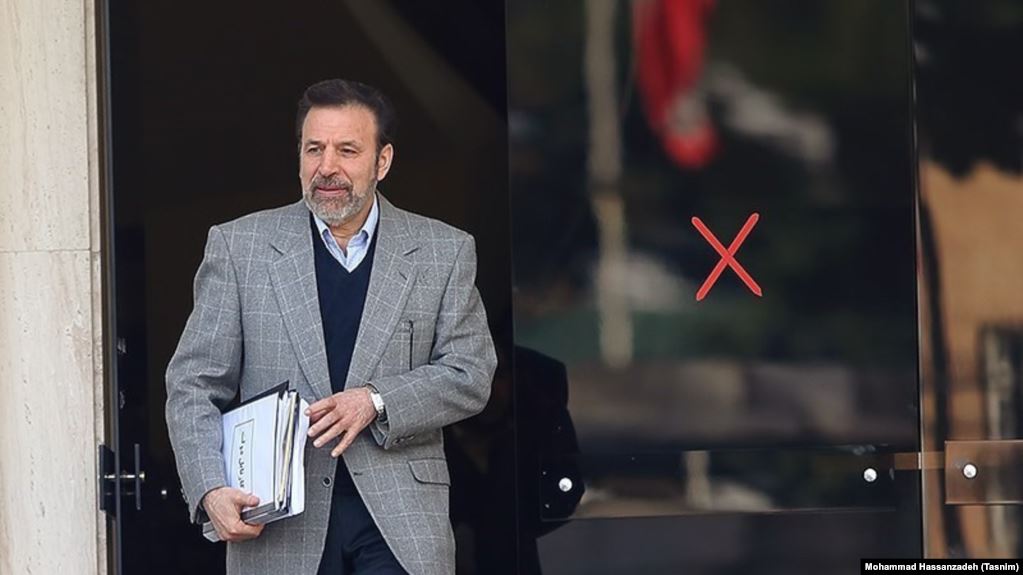
Following Hassan Rouhani’s criticism of those who have created problems for the Iranian government in ratifying money-laundering bills, his chief of staff Mahmoud Vaezi announced that the bills have been ratified in the meeting between the heads of Iran’s three branches, adding that they are now waiting for the Iranian Supreme Leader Ali Khamenei to declare his views in this regard.
According to Vaezi, after the ratification of the bills by the heads of Iran’s three branches, the result has been sent to the supreme leader. He said he is not aware of Khamenei’s views in this regard.
Those who oppose the ratification of FATF’s bills – mostly close to the supreme leader – say that they will hinder financial help provided to Hamas and the Lebanese Hezbollah.
Previously, Iran’s First Vice President Eshaq Jahangiri had announced that Ali Khamenei has agreed to ratify the bills, but the Expediency Council later denied the claimed, saying that the supreme leader has not expressed his view in this regard yet.
The Guardian Council has rejected the bills for Iran joining the Palermo Convention against Transnational Organized Crime and joining the Terrorist Financing Convention, while the Expediency Council, which is legally in charge of making the final decision, has not announced its views in this regard yet.
FATF (Financial Action Task Force) recently announced that if Iran doesn’t implement the Palermo Convention by February 2020 (in four months), its countermeasures against Iran will return. Meanwhile, FATF has asked its members for more scrutiny over financial transactions with companies in Iran.
This 4-month period is the 6th and last deadline for Iran to comply with FATF’s standards. FATF has said that if its demands with regard to the Palermo Convention and the Terrorist Financing Convention are not complied with, it will not extend its suspension of countermeasures against Iran anymore.
US Secretary of State Mike Pompeo had earlier said regarding these bills that if Iran is serious about fighting money-laundering and combatting financing terrorism, it should have immediately ratified the international conventions in this regard.
Radio Farda
Zarif criticizes FATF for demanding more scrutiny over all its transactions with Iran
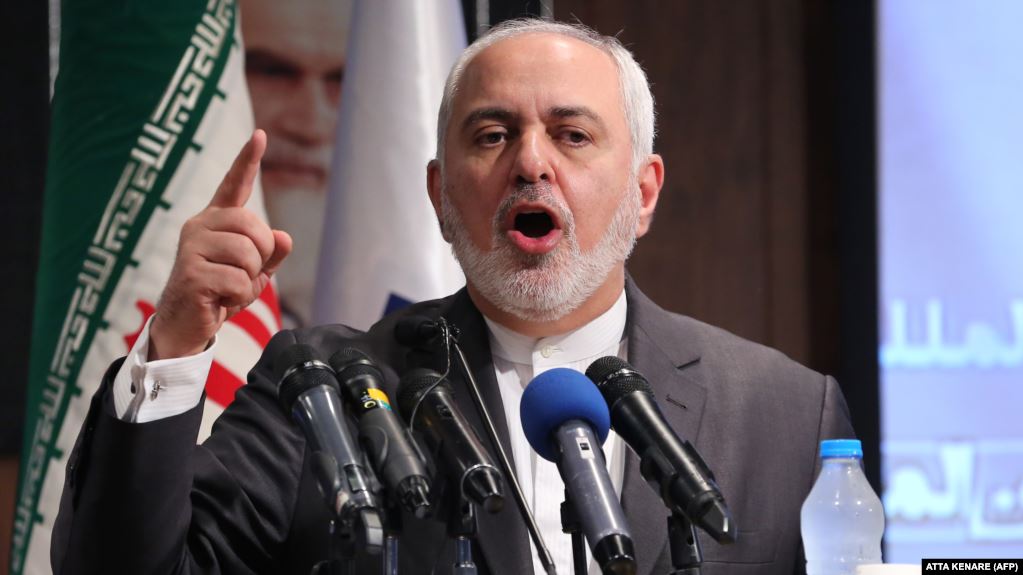
Iranian Foreign Minister Mohammad Javad Zarif has called FATF’s demand for more scrutiny over all its transactions with Iran a “political decision.”
“FATF’s decision is entirely political and we are absolutely against it,” said Zarif, “But because of our national interests, we have taken all necessary measures in order to fight terrorism and money laundering.”
Iran’s foreign minister added that he hoped that with more consensus in the country, “those who do not care for Iran’s interests and are opposed to us will have fewer excuses.”
The FATF has set a final deadline of February 2020 for Iran to comply with international norms. “If before February 2020, Iran does not enact the Palermo and Terrorist Financing Conventions in line with FATF Standards, then FATF will fully lift the suspension of counter-measures and call on its members and urge all jurisdictions to apply effective counter-measures, in line with recommendation 19,” FATF said in a statement.
Radio Farda
IIran welcomes Russia-Turkey agreement over Syria
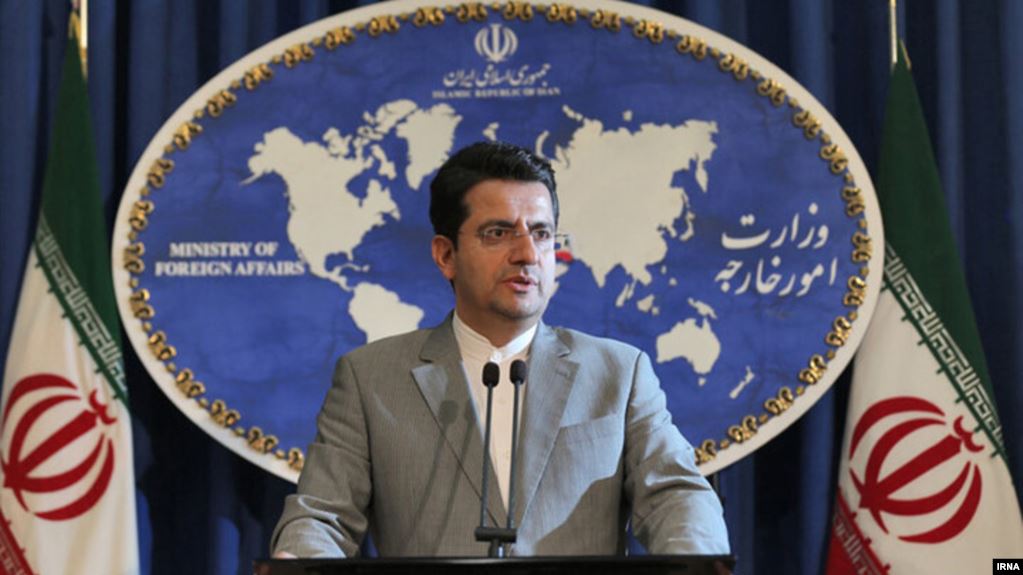 Iran’s Foreign Ministry Spokesperson Abbas Mousavi said that Iran considers the agreement between Russia and Turkey to end the conflict in northern Syria a ‘positive step’ in order for peace and stability to return to the region.
Iran’s Foreign Ministry Spokesperson Abbas Mousavi said that Iran considers the agreement between Russia and Turkey to end the conflict in northern Syria a ‘positive step’ in order for peace and stability to return to the region.
According to Mousavi, the Islamic Republic welcomes “any measure that would end in preserving the territorial integrity of Syria and bolster its national sovereignty”, as a result bringing peace and stability to the region.
Iran’s Foreign Ministry spokesperson claimed that the Islamic Republic has always backed “dialogue and peaceful” ways for resolving differences and encouraged opposing sides to negotiate in order to reach an agreement.
Russian President Vladimir Putin and Turkish President Recep Tayyip Erdogan signed the aforementioned agreement on Tuesday, October 22 in Sochi. The signed agreement is comprised of ten articles, the first of which urges the need to respect Syrian national sovereignty and to preserve its territorial integrity.
According to the agreement, Russian military police and Syrian border guards will cooperate to ensure the exit of armed Kurdish forces affiliated with the People’s Protection Units from an area up to 30km along the Turkey-Syria border.
Turkey and Russia’s military units will jointly patrol up to 10km within Syria.
Iranian President Hassan Rouhani had earlier said Turkey’s attack on northern Syria is not acceptable to Iran, adding that this is not ‘pleasant’ for the region.
Later, Turkish President Erdogan expressed dissatisfaction with criticism from within Iran against Turkey’s military operations within Syria, saying that, “Rouhani must silence these voices”.
Deutche Welle
Radio Farda
Deferred debts of Iranian banks have increased to 170 thousand billion tomans
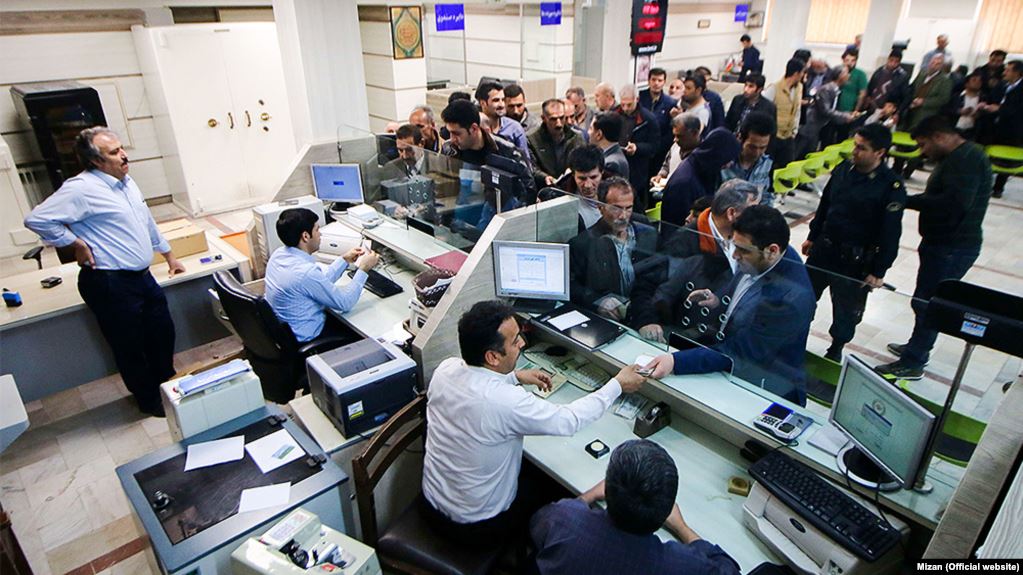
Deferred debts of Iranian banks reached 170 thousand billion tomans in the last week of September, showing an increase compared to the same time last year when it was 151 thousand billion tomans, according to a report by Iran Online.
The same report says banks have also paid more than 1363 billion tomans as banking facilities (i.e overdraft services, credit lines, Swingline loans etc) during the same period. Based on international standards, the ratio between banks’ deferred debts and their banking facilities should be between 2 to 5 percent. If it goes over 5 percent, banking systems will face grave risks.
The ratio between deferred debts and banking facilities in Iran is currently 2 to 5 times more than international standards. Abdolnasser Hemati, the Governor of the Central Bank of Iran, recently said banks in Iran suffer from a considerable imbalance between their assets and debts at present.
Radio Farda
Luxury meat in Tehran

Iranian media has reported the selling of ‘luxury meat’ in some stores in northern Tehran. A couple of years ago, selling ‘fancy meat’ online too made the headlines.
By definition, luxury meat is that of calves that have been fed on milk and not eaten any grass. The sellers also claim that the muscles of these calves have been massaged to tender their meat. This type of meat is sold up to 1 million tomans per kilo in Tehran.
In some cases, Iran’s senior officials have reacted to offering and selling particular and expensive goods. 8 years ago, for example, there was controversial news of selling ice cream with gold powder on top in Milad Tower in Tehran. Following the news, the Iranian Supreme Leader’s office was forced to issue a fatwa, saying, “Eating ice-cream that contains gold is haram”. Meanwhile, Tehran’s mayor promised back then to stop selling that kind of ice cream.
Opening new shopping centers during the past couple of years in Iran and luxury stores in these centers has made it possible for rich people to access restaurants and cafes offering special ‘luxury’ foods to their customers.
BBC Persian
$710m worth of exports from the special economic zone in the Gulf
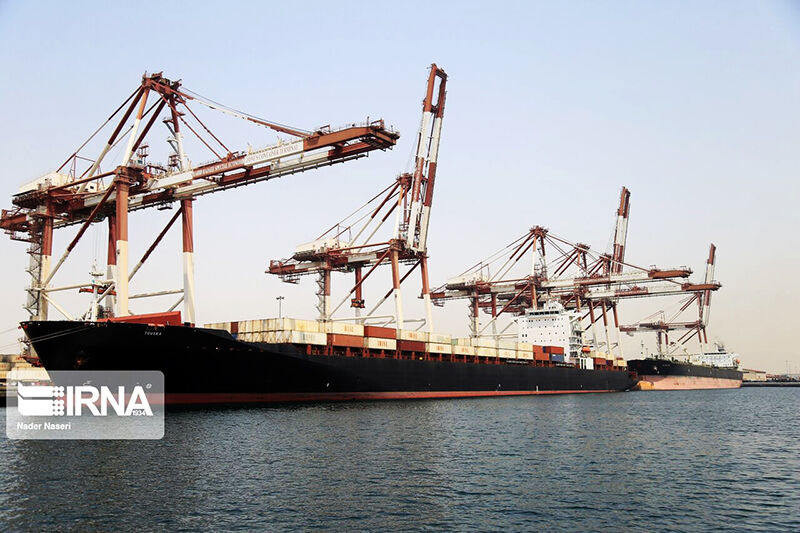
The CEO of the Special Economic Zone of the Gulf Mineral and Metal Industries, Hassan Khalaj Tahrani announced that the value of exports from this zone reached $710 million during the first six months of the Iranian year (starting on March 21). He added that 3.1 million tons of produced goods entered Iran’s markets playing a significant role in the country’s industries.
According to Tahrani, Mobarakeh Steel Company with $276m and Hormozgan Steel Company with $177m had the most exports from this zone.
Pointing out to the prospect of exports from this zone, Tahrani added that more than 1.8 million tons of mineral and metal products worth $710m have been exported from the Special Economic Zone in the Gulf.
IRNA
